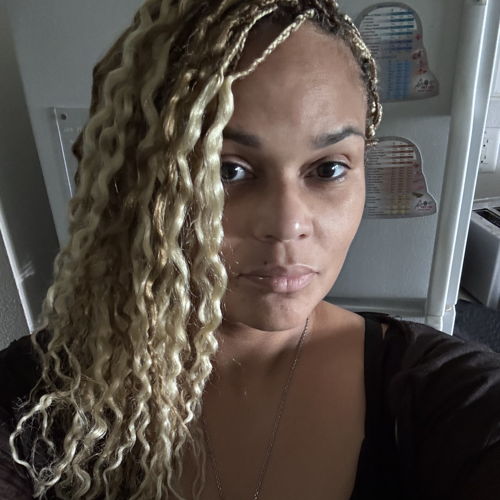Eliza Maria Rios Guisao

Eliza María Ríos Güisao is a passionate and experienced educator whose career has been shaped by a deep commitment to inclusive learning and student empowerment. With a master’s degree in Special Education from Grand Canyon University and ongoing doctoral studies in Educational Leadership at Northcentral University, Eliza has spent nearly a decade supporting diverse student populations across Texas. From her early days as a SPED Teacher Assistant to her current role as Lead Special Education Teacher at Uplift Education, she has continuously championed individualized instruction and emotional development, working to ensure that every student—regardless of ability—feels seen, supported, and capable.
Fluent in both Spanish and English, Eliza brings cultural sensitivity and strong communication skills to her classrooms, enriching the learning environment for students and families alike. Beyond her teaching, she has demonstrated leadership in curriculum development, coaching, and advocacy for equitable education. Her dedication extends beyond the classroom, as reflected in her efforts to crowdsource resources for her students and her history of community involvement. Eliza’s journey is a testament to the power of empathy, perseverance, and faith in shaping the next generation of learners and leaders.
• Grand Canyon University- Ed.D
• Universidad Metropolitana- B.B.A.
• DeVry University-Texas
• STRIVE
What do you attribute your success to?
I attribute my success to the love I have for children and my passion for helping them adapt and thrive in the school environment. Although I originally pursued accounting, having a son with special needs inspired me to change my path—and with the support of my amazing mentor, Stacy Pence, I found my true calling in special education.
What’s the best career advice you’ve ever received?
“The best career advice I’ve ever received is to focus on impact, not titles.” As the Lead Special Education Teacher, I’ve seen how true this is. My work is not just about a role—it’s about ensuring compliance, supporting teachers, building trust with parents, and most importantly, helping students succeed. That advice keeps me centered on creating meaningful change rather than chasing positions. It also shapes my leadership aspirations. I know that by consistently demonstrating impact—whether through student growth, teacher collaboration, or smoother systems—I am preparing myself for the next steps as a Special Education Coordinator and eventually broader leadership roles.
What advice would you give to young women entering your industry?
“Own your voice and your impact.” Special Education is both rewarding and challenging, and as women entering this field, it’s easy to feel like your role is to quietly support. But the best advice I would give is: advocate boldly—for your students, for your colleagues, and for yourself. Advocate for students: They need someone who will not only teach them but also fight for their services, accommodations, and opportunities. Advocate for colleagues: Share your expertise and lift others up. Collaboration, not competition, builds stronger classrooms and schools. Advocate for yourself: Don’t minimize your leadership just because you don’t have a certain title yet. Your knowledge and experience matter—speak with confidence at the ARD table, in team meetings, and in leadership discussions. Also, remember that relationships matter as much as knowledge. Build trust with parents, respect with teachers, and credibility with administrators. Your influence grows from the impact you make, not just from the position you hold. Finally, never apologize for being ambitious. If your heart is in it, aim for coordinator, director, or higher. Your perspective as a woman and as a special educator is exactly what leadership needs.
What are the biggest challenges or opportunities in your field right now?
Biggest Challenges in Special Education Right Now Teacher Retention & Burnout – Many special education teachers leave the field due to heavy caseloads, compliance pressures, and lack of support. This creates instability for students who need consistency. Compliance vs. Instruction – A major challenge is balancing paperwork (ARDs, IEPs, service minutes, progress monitoring) with meaningful, high-quality instruction. Too often, compliance overshadows teaching. Equity & Access – Ensuring students with disabilities receive fair access to general education settings, extracurriculars, and advanced opportunities is still an ongoing struggle. Biggest Opportunities in Special Education Technology & Innovation – Assistive technology, digital tools, and data-driven instruction create new ways to support diverse learners. With the right training, these can make classrooms more inclusive and effective. Collaboration & Inclusion – There’s a growing movement toward stronger partnerships between general education and special education staff. This shift opens doors for better co-teaching, shared strategies, and unified school cultures. Leadership Growth – Districts are recognizing the need for strong SPED leaders at the campus and district level. For educators like me, this creates opportunities to move into coordinator or director roles where systems-level change can be made.
What values are most important to you in your work and personal life?
“Integrity, equity, and compassion guide me in both my work and personal life. I believe in being honest, advocating for others, and building relationships rooted in empathy. I also value continuous growth and measuring success by the impact I create for students, families, and colleagues.”